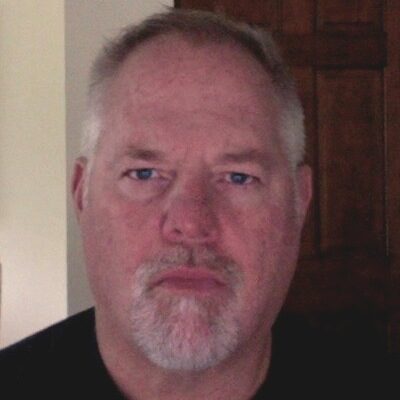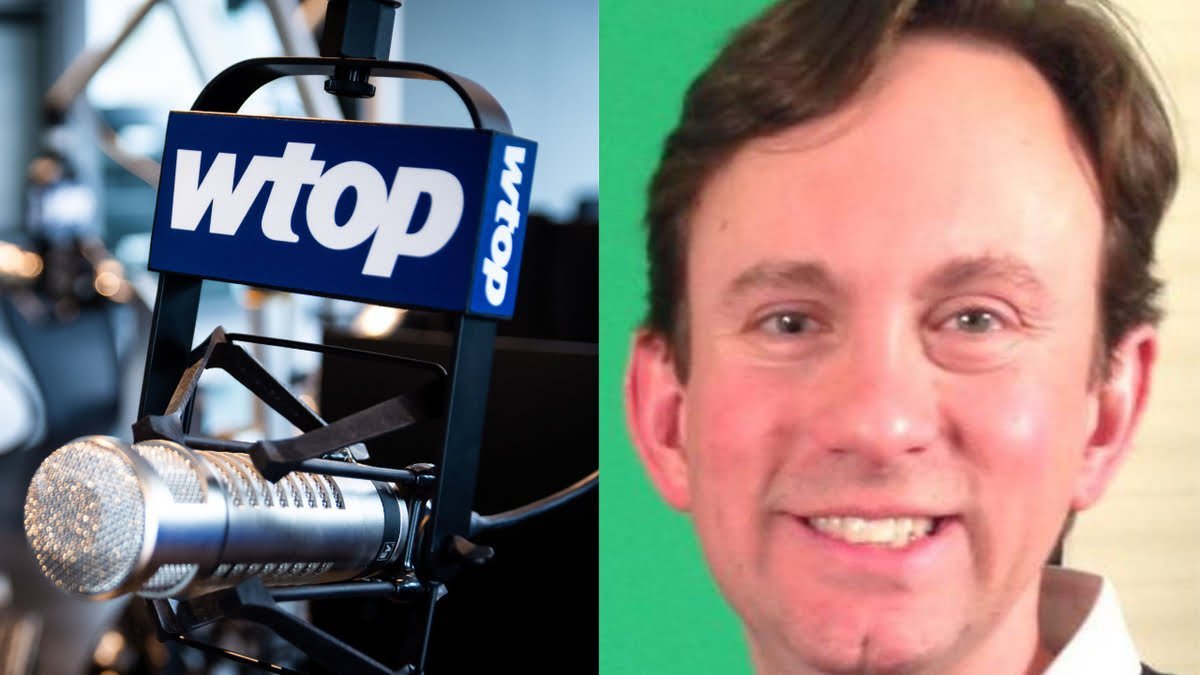When Craig Schwalb told his mother he was going into radio, she asked how much he’d get paid.
“I told her how much the salary was, and it wasn’t a lot,” Schwalb said. “Then she asked me if I was sure I wanted to work in that business. I did and was very excited about it.”
Adversity struck the family early. Schwalb’s father passed away when he was just 12 years old. He had to figure out how to move ahead with only his mother as a provider and role model.
“I think my father’s death sparked something in me,” Schwalb said. “I was so determined to work hard and focus. I also tried to be a good person and live up to his name. I think that would be what he wanted for me. My mom had to raise two boys by herself. I just wanted to do right by her. I always had that in the back of my mind.”
There was a lot of love in the Schwalb family. They were prepared for his father’s death as he’d been sick for several years.
“We took care of my father as best we could,” Schwalb said. “We didn’t have the most, but we didn’t want for anything. I don’t ever talk much about that.”
His parents were both teachers and enjoyed helping people.
“I think I became the same way,” Schwalb said. “A Midwestern upbringing made me easygoing. I think part of the Midwest culture is listening, learning. Making sure you’re working hard. It’s that kind of spirit and style that shaped me.”
He went to school at Eastern Illinois University in Charleston, Illinois. Growing up in the St. Louis area, Schwalb said KMOX had a huge influence on him and his career.
“Anne Keefe and Bob Hardy are voices I grew up with. It was a true blend of news and talk. A terrific format, and it’s still a very influential radio station today. Spoken word was a big part of my life. Through high school and college I was always grabbing those signals.”
He also listened to WGN, WLS, and a huge inspiration for him was The Loop. Schwalb says, “I had the good fortune to meet Steve Dahl briefly when he was dropped by WNEW/NYC years ago. He’s one of the icons in our business, as a young person who wanted to learn about spoken word radio. I thought Dahl did a lot of things that were amazing. Howard Stern hadn’t come out to my area at that point. We had Brandmeier, Don, and Roma.”
Schwalb said he learned much from listening to Kevin Matthews, Steve Dahl, and Garry Meier.
“It was all about personality, comedy. Those kind of guys are getting harder to find. There’s so much arguing these days. That just wasn’t part of the genre.”
He cited how Dahl was the man behind the ‘disco demolition’ night at Comiskey Park. “I look back fondly on those times and how those stations informed us what FM talk was all about. I had a lot of great experiences with FM talk in the beginning of my career.”
Eastern Illinois was the right fit for Schwalb, who said he was able to work at the station as a freshman. “It allowed me to scratch the radio itch early. I was able to start managing from the beginning.”
Schwalb started as music director at WEIU, the college radio station. He was immediately dealing with the stuff behind the curtain, picking the music.
“I always liked bringing young talent in and watching them flourish. That’s why I took the management side. It has been so gratifying.”
It’s about a four-hour car drive from New York to D.C. You’d think the lifestyles would be dramatically different, but Craig Schwalb, the director of content integration and operation at WTOP, says that’s not really the case. Schwalb did say there is one huge commonality.
“It’s hot in D.C., and it’s hot in New York,” Schwalb said. “Everybody is kind of sweltering.”
His family is from Illinois, but Schwalb said he’d traveled to D.C with family and friends over the years. “I think there’s a great feeling for this place, what it means nationally. It just has that feeling of being in the center of power, that powerful vibe.”
Schwalb arrived at WTOP in March 2020, just before the Covid curtain came down on the world. He said his timing was lucky in some regards.
“I was interested in how the station would cover Covid,” Schwalb said. “I was interested in how we’d respond to the community, how we could step forward to help the community. It was a wild time. Even working remotely, we kept the quality high and met our journalistic standards.”
He faced incredible challenges from the start. Schwalb said during Covid, WTOP’s most significant focus was keeping everyone safe. But, in spite of the adversity, Schwalb said things rolled with the highest quality.
“I think that’s a testament to our staff’s commitment to journalism,” he says. “We all did whatever we had to do to keep this station going. It was very important to everybody because of their commitment. Good journalism is hard work.”
Like most businesses, WTOP had a lot of conference calls and Zoom meetings to keep the business going, to ensure people were on track.
“I think it was a little more challenging to manage people I’d never even met in person,” Schwalb explained. “I think everybody is mostly back in the office, focused on doing what we have to do now.”
Before taking the job at WTOP, Schwalb met with GM Joel Oxley and Julia Ziegler, director of news and programming. They discussed the opportunity available. Schwab said their discussions made a lot of sense as he’s always found the multiplatform world exciting.
“One of the coolest things they said in our meeting was WTOP was not just a radio station, it’s a news organization, and that’s what made it more appealing. It’s such a great heritage brand with a family-oriented feel.”
Schwalb said he always liked working for Cumulus and never had any problems. He added an opportunity at WTOP doesn’t happen very often.
“Anybody who cares about radio, news, spoken word, knows WTOP. You just don’t look at it as an ordinary opportunity. So glad I’m here.”
Schwalb has managed personalities like Don Imus, Curtis Sliwa, and Sid Rosenberg throughout his career. It’s challenging for a PD when navigating those potentially combustible conditions and delicate egos.
“I think it’s all about authenticity. I know that word gets thrown around a lot,” Schwalb explained. “I wasn’t the first PD Imus had seen, but unfortunately wound up being the last. I sort of know my spot in their vaunted careers.”
At times, Schwalb can be disarmingly authentic. He admits he’s not perfect but will make strides with his talented talkers. He’s a partner in all aspects of what they’re doing on-air.
“There are times I’ll disagree with my hosts, but we’ll have a conversation. I make myself very accessible. They’ve seen so many things, experiences I’ve never had. I’m there to do a job. Make sure their shows are as good as they can be. I do what I can to help them see things in a different way when I need to. I want to be a resource. I also like to share a joke, soften beaches.”
Schwalb said he cannot think of an instance in his career where he threw up his hands and said, ‘I’m not communicating.’
“Part of it is how I approach an issue, how the company allowed me to deal with it. If you come in with good support, quality of character, they can sense it. Do what you say you’re going to do.”
Another component of his communication includes never lying to anyone. “The playbook isn’t that hard if you follow a few basic tenets.”
Schwalb has developed content and special programming for high-profile personalities like Kim Kardashian, Rudy Giuliani, Bobby Flay, and Julian Lennon, among others.
Schwalb said it was rewarding to work with big brand celebrities. To see how they operate in their world.
“We’d search for a structure for the show, talk about what we’re looking for. Some were segments of existing talk shows. We were all about generating audience and interest. The Kardashian’s were just getting big, and I created some content with them. We developed a working relationship together.”
Schwalb recalls Julian Lennon coming in to work with the team at WABC. They decided to focus on Lennon’s children’s books he’d written.
“He came to WABC. We did a panel talk about his book, his life. We also helped him spread the word about his book. It was fun to work with him.”
Throughout his career, Schwalb has sent reporters into hazardous and dangerous situations.
“We had a lot of reporters at the Capitol on January 6th,” Schwalb said. “We took a long and hard look about how we were going to approach the story. We had to make sure our staff was safe. Allow our audience to be apprised of what was going on. You’re trying to react when something is escalating rapidly. In hindsight, you may have wanted some different angles and layers to a story. In those situations, the journalists are hungry for that story.”
When you work on a story of the magnitude of January 6th, you must marshal your resources. Schwalb directed breaking news coverage of the September 11 attacks in NYC, the Boston bombing, and the Hudson River landing, among many others. The lessons learned were simple but essential.
“With big stories, we have to figure out how we were going to walk into those situations. We must always make sure we have all our ducks in a row.”

Jim Cryns writes features for Barrett News Media. He has spent time in radio as a reporter for WTMJ, and has served as an author and former writer for the Milwaukee Brewers. To touch base or pick up a copy of his new book: Talk To Me – Profiles on News Talkers and Media Leaders From Top 50 Markets, log on to Amazon or shoot Jim an email at jimcryns3_zhd@indeedemail.com.







